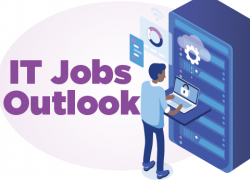
In December 2021 Vice President Kamala Harris convened the administration’s first National Space Council meeting where she challenged us to inspire and develop the space workforce of today and tomorrow. At the Department of Labor’s Employment and Training Administration, we took that challenge seriously and sought to understand the workforce development needs and opportunities better that exist in the space sector, especially opportunities to engage overlooked and vulnerable populations.
Through our inquiries, we learned there is both an urgent and emergent need for skilled technical workers who build, test and maintain critical equipment. This exploration challenged our assumptions of the space workforce — making clear that in addition to astronauts and engineers, the sector simply cannot exist without diverse, highly skilled technicians. It also revealed opportunities for the workforce system and space sector to collaborate, provide training opportunities, and clearly define the high-quality career pathways essential to ensuring a competitive commercial space sector and strong national security.
To understand the role the department could play in expanding workforce development opportunities better in the space sector, we explored existing occupations in the industry and the skills they require, utilized Bureau of Labor Statistics’ data to understand staffing patterns better, and engaged in conversations with stakeholders in the space sector. Through this process, we identified several skilled technical occupations that typically don’t require entrants to have a college degree — a group of workers we hope to target through this initiative.
On Aug. 18, in collaboration with the National Space Council and the White House Office of Science Technology Policy, we convened over 40 companies, industry associations and training providers from the space sector to test and validate our understanding and discuss the clear and urgent need to grow and diversify the space workforce.
This convening illuminated several opportunities and important distinctions between the aerospace and space industries that impact workforce needs, which we will further unpack over the next year. For example, the sector would benefit from support in facilitating, convening and guiding local workforce system partners and more intentionally leveraging the apprenticeship system — two areas the department is well-positioned to support.
As the department continues to grow our understanding of the Space Sector, we look forward to advancing the commitment we announced today at the second convening of the National Space Council, and to launching new initiatives including a Registered Apprenticeship Accelerator focused on the space sector’s skilled technical workforce by the end of 2023 — particularly in critical manufacturing occupations. We look forward to continued partnership with the Space Sector and other federal agencies as we continue to meet the challenge to inspire, prepare, and employ America’s workers in this exciting sector.
Stephanie Rodriguez is a senior workforce fellow for the Department of Labor's Employment and Training Administration. Chike Aguh is the Department of Labor's chief innovation officer.

 U.S. Department of Labor Blog
U.S. Department of Labor Blog
